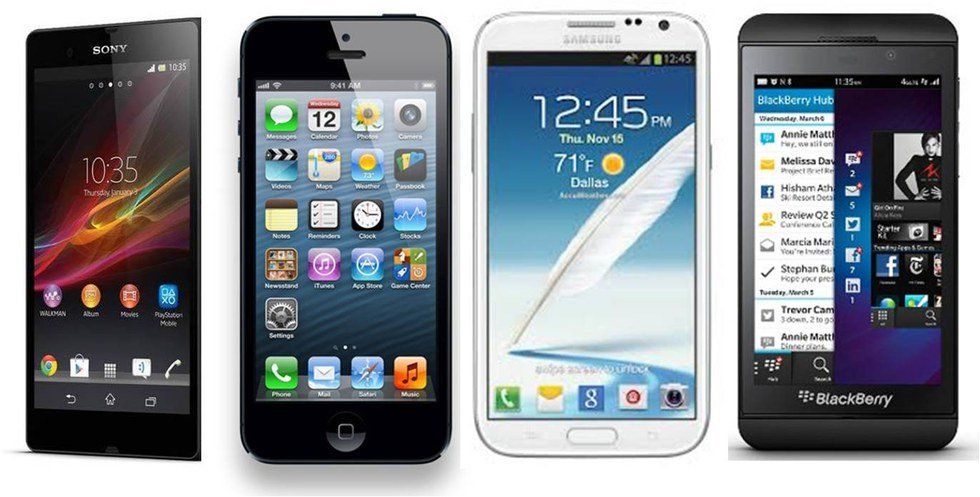One of the biggest social concerns in our country is the definition of privacy. When we accept to application license and access terms, we breeze through most of it in order to get straight to installments for our devices so we can stay in touch with the latest trends that everyone is downloading. We’re all guilty of it, but just think for a second. Have you ever just sat down and questioned why an application like “Plant Nanny” would need access to your photos and caller information? (For those of you who don’t know, Plant Nanny is an application to remind you when and how much water you should be drinking daily. The “plant” aspect comes into play when the application realizes you haven’t been hydrating yourself; as you may have guessed, the plant dies when you don’t record your water intake daily.)
As we have seen through Google, access to a phone’s data including caller information, recent searches, photos and text messages all has to do with advertisements. Google uses this information to determine what ads to feature while you’re using an application. It’s a way of grabbing your attention with something you’re interested in or have been searching for, and getting you to buy it. After all, we do live in a capitalistic society, so this must be something we should all just accept, or at least be accustomed to by now, right?
Think again.
Apple somehow managed to successfully draw up a way to separate privacy and “phone intelligence” through the new iOS 9 software update. Instead of taking information and data that you’ve inputted into other applications and using the information to lure you into some other businesses, advertisements and spam messages, the information collected is only between you and your phone – “The iPhone’s own computer combs through your email, contacts and calendar, as well as how you use apps, like an overeager secretary," according to the Wall Street Journal. The information is not shared with other third party applications and isn’t “sold” to advertisers or schemers to steal your money. In Apple’s own words, the phone simply “figures most of it out on the phone itself, far away from the prying eyes of advertisers or potential hackers”. Thus, people would be glad to know now that Apple, CEO Tim Cook, says, “doesn’t want your data”.
The only drawback is that this whole “knowing what you want before you even know you want it” thing is more accurate coming from Google, Microsoft and Android. Writer Geoffrey A. Fowler of the Wall Street Journal gives us an examples in his article titled What Your iPhone Doesn’t Tell Apple:
On Sunday afternoon, my iPhone suggested that I might want recommendations for lunch in San Francisco. When I tapped a button, it proposed something called “Michael the Coconut Guy” and a random corner deli. Google Now, at that same moment, proactively recommended restaurants I would have suggested myself: a beloved bakery called Tartine and the restaurant Zuni Café.
Google’s higher IQ is extremely helpful in places like the car, where Android Auto can automatically pop up the address of your next appointment, or a business you just searched on your laptop. (Siri does a solid job riding shotgun with Apple’s CarPlay, but that point-of-interest problem is even more glaring on the road.)
It isn’t just Google. Microsoft’s Cortana, built into Windows 10, provides a “notebook” of what it knows about you across devices, which you can add to or edit. But there’s no way to see or edit what Apple’s Siri knows about you. She’s designed to not know it’s really you.
I can go on. Android TV makes personalized movie recommendations, but the brand-new Apple TV can’t. And here’s one that’s critical for the future: Apple’s smart home-control system, HomeKit, is so concerned with privacy that it doesn’t record what’s happening with the connected devices in your home. Google’s Nest system records every time you adjust the thermostat, open the garage door, or go on vacation, using all that data to pretty much run itself. (And Nest doesn’t even feed home data into Google’s ad targeting.)
So while many may think that Apple has all the “first” ideas, they are correct when it comes to who came out with the first, functional touchscreen smartphone. However, everything else is either perfected or just simply taken from other technology rivals, just like the new Apple product called "The Pencil" takes on Samsung's S Pen, only to a more detail-oriented function.
Fowler has also noted how many engineers find Apple’s data privacy policies “too restrictive” to the point where “Apple was having difficulty hiring for its artificial-intelligence team”, as Fowler notes. Maybe this is why Siri is “designed to not know it’s really you” - it's not allowed to.
Overall, iOS 9 is not as convincing to prove to the world that “we have to make a trade-off between privacy and functionality.”





















